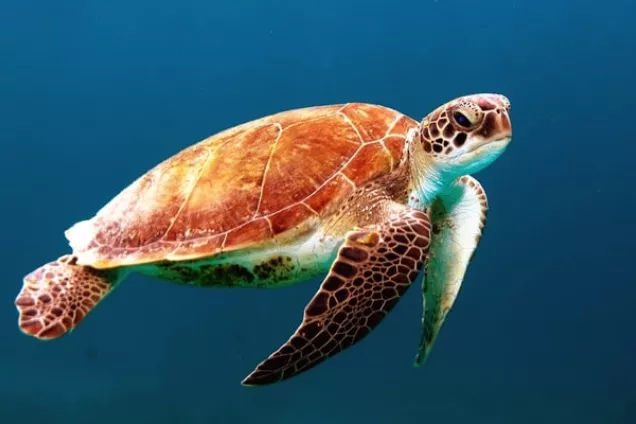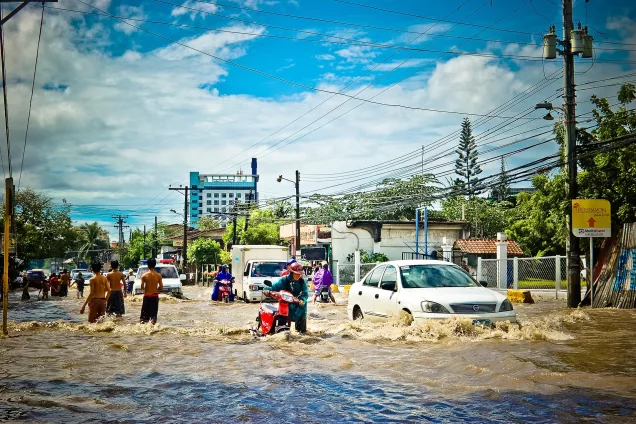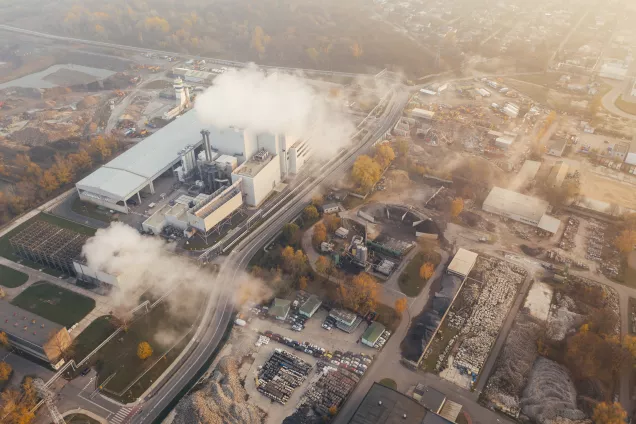Guy Jackson, post-doctoral researcher
Guy Jackson is a human geographer currently working on the project DICE (Recasting the Disproportionate Impacts of Climate Change Extremes) at LUCSUS.
In this project he is exploring climate change induced loss and damage in collaboration with Indigenous peoples in Australia and the Pacific. Internationally contentious issues such as liability, responsibility, and compensation will be critically examined. This research seeks to further our understanding of loss and damage, both empirically and theoretically, by using an intersectional lens and transdisciplinary approaches.
He received his PhD in Human Geography from The University of Queensland. He is interested in critically examining climate change loss and damage, and disaster risk reduction, and the (re)production of vulnerability in socio-ecological systems.
Guy Jackson's personal staff page
Alicia N’Guetta, PhD-student
Alicia N’Guetta doctoral research focuses on human relationship with the ocean and the effect of climate change and extreme events causing noneconomic losses and damages.
By understanding this relation and using an intersectionality approach, Alicia N’Guetta’s research will help to better understand the disproportionate impact of losses and damages of the targeted population and contribute towards better informed appropriate adaptation strategies such as nature-based solution that improves livelihood resilience and does not lead to greater inequalities. Her doctoral research is part of the MACOBIOS project and DICE project.
She earned an integrated Bachelor's Degree in Economics and Politics and a Master's Degree in Agricultural Economics (M.Sc.) with thesis from Laval University in Canada. Prior to joining LUCSUS, Alicia was working as a Monitoring and Evaluation officer for the Food and Agriculture Organization (FAO) Representation in Madagascar, Comoros, Mauritius, and Seychelles at the Comoros office and was also supporting programmes' implementation.
Alicia N’Guetta's personal staff page
Fabiola Espinoza, PhD-student
Fabiola Espinoza’s doctoral research takes place in the context of the MaCoBioS project. The aim of the project is to fill the knowledge gaps on the inter-relation between climate change, biodiversity, and ecosystem services to ensure an efficient and integrated management and conservation strategies for European Marine Coastal Ecosystems (MCE) to face climate change. MaCoBioS will study three ecoregions with different climates. Fabiola Espinoza’s doctoral research focuses on the Lesser Antilles in the Caribbean ecoregion.
She holds an undergraduate degree in biology with a specialization in fisheries management from the National University of San Marcos and a master’s degree in environmental science, policy, and management from the Central European University. Prior joining LUCUS, Fabiola was working as a fisheries and finance consultant at the Food and Agricultural Organization of the United Nations (FAO). Additionally, she worked on marine protected area management in Peru.
Fabiola Espinoza's personal staff page
Inge-Merete Hougaard, post-doctoral researcher
Inge-Merete Hougaard research focuses on climate politics and the role of negative emissions. In the project, Tradeoffs between negative emissions and near-term emissions reductions, she explores the promise that negative emissions holds for future carbon reductions, and the risk this implies in terms of delaying or deterring climate change mitigation efforts. Focusing on Scandinavia, she explores the discursive and material manifestations of carbon dioxide removal (CDR) practices, specifically biochar and industrial carbon capture and storage (CCS).
Inge-Merete Hougaard holds a PhD in Political Ecology from University of Copenhagen and has a background in International Development Studies and Public Administration. Her research takes point of departure in everyday politics of environmental 'good' and ‘bads’, trying to understand the local dynamics of resource access and use through wider political and economic structures.



